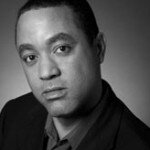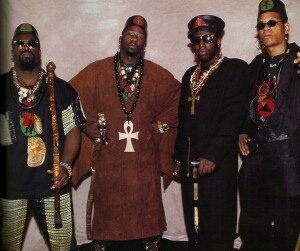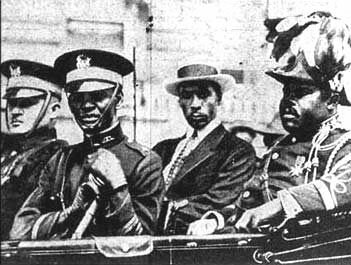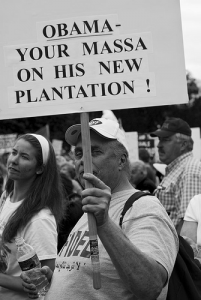Yea…I’m still checking African-American
Talk About Race — By Mark Harris on January 29, 2010 at 07:08Just when you think John McWhorter has gained a modicum of sense — or at least clarity — since the election of Barack Obama, you read something like this. McWhorter’s basic argument is that African Americans — the ethnic group of people in the United States who are largely descended from West African slaves brought to the continental English colonies in the 17th and 18th centuries, with some European and indigenous ancestry mixed in as well — can no longer lay claim to that term because one million people in the USA were actually born on the African continent. He proposes that we should exclusively refer to ourselves as “Black.”
To put it flatly, this is patently ridiculous. For one thing, native-born Africans are black as well and, comparing McWhorter’s visage to that of the average Ghanaian, it doesn’t make sense that he would claim this term to the exclusion of said immigrant. Beyond that, he mostly argues that because African Americans are native English speakers and don’t know exactly where in Africa our ancestors came from, our terminology for ourselves has to change. On a related note, I’d like Jews to stop referring to themselves as such because, well, the Kingdom of Judah hasn’t been around for about 2000 years, and they certainly can’t trace their ancestry back to specific towns.
Naming ourselves has been a point of contention in the African American community for decades, hence the evolution from “colored” and “Negro” to “Black,” and “Afro-American,” and now “African American.” Certainly the last two grew out of a mid-20th century drive for our community to have a sense of cultural pride, a drive that brought us such diverse manifestations as Kwanzaa, the (historically accurate) insistence that ancient Egyptians were racially Black, not mixed or white, and music from Sun Ra to X Clan.
That element of our culture has dissipated significantly, but McWhorter’s desire to eliminate it completely because there are “real Africans” in our midst seems misplaced, as does his casual disparaging of groups such as African Ancestry that seek to answer the question of our specific origins. Our community does, after all, originate in western Africa, so why not acknowledge that in one of the myriad terms we use for ourselves? This certainly doesn’t detract from the identity of Africans in our midst. It’s really just a part of the complexity of the African Diaspora.
Ultimately, our community isn’t going to settle on one term for ourselves, and reasonably so. “African American” may be the term du jour, but we still have the United Negro College Fund, National Association for the Advancement of Colored People, and a passel of Historically Black Colleges and Universities. Moreover, our community’s borders have always been hazy, which is why MANY of our most celebrated leaders — DuBois, Garvey, Malcolm X, Shirley Chisholm — haven’t been the descendants of enslaved Southern Blacks, but rather West Indian in origin, and our first African American President’s father is from rural Kenya, not rural Alabama.
Any historian of the Black experience can tell you that in the 18th and 19th centuries, there was significant interchange of slaves between the West Indies and the present-day USA, and that there are now significant communities of people descended from Southern blacks in Liberia and Ghana. In other words, the terms, the people, and the identities are much more fluid than McWhorter seems to realize. So while he can call himself Black, he should realize that his logic doesn’t limit me, my cousin’s African husband, or my Trini frat brother from calling ourselves whatever we want.
Tags: African-Americans, Barack Obama, blacks, Culture, race, Talking about RaceAuthor: Mark Harris (7 Articles)

Mark Harris, Jr., is a Graduate Research Associate at the Kirwan Institute. He received his B.S. in Political Science from Howard University and recently completed a Master’s in Public Administration at The Ohio State University. He is currently pursuing a Master’s in City and Regional Planning at OSU. Mark previously worked as a community organizer, as an Americorps member with Columbus Housing Partnership, and for Columbus City Council.





 Share This
Share This Tweet This
Tweet This Digg This
Digg This Save to delicious
Save to delicious Stumble it
Stumble it





 The last white people in America, part II
The last white people in America, part II Classroom as Hostile Territory: Stopping School “Push Out”
Classroom as Hostile Territory: Stopping School “Push Out” 10 Reasons not to read this
10 Reasons not to read this








1 Comment
Well said! LOL I find that African Americans and Africans in American who have DEEP issues with the African-American community always try to make this argument. In addition, where would McWhorter place Gullah Geechie people in South Carolina? He probably doesn’t know they exist.